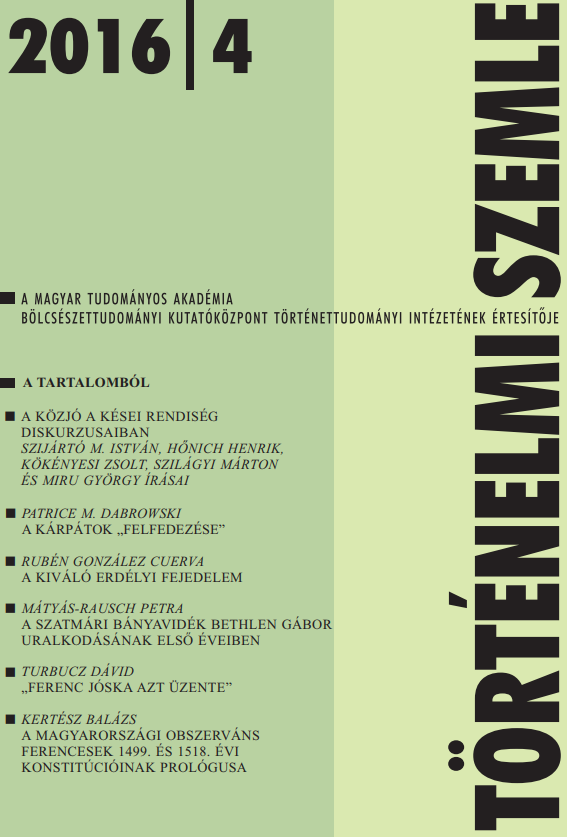A hasznos állampolgár képzése - Közjó és oktatás-nevelés kapcsolata a 18. századi Habsburg Monarchiában
The Training of Useful Citizens the Relations between Common Good and Education in the 18th-Century Habsburg Monarchy
Author(s): Zsolt KökényesiSubject(s): Politics and society, State/Government and Education, 18th Century, 19th Century
Published by: Magyar Tudományos Akadémia Bölcsészettudományi Kutatóközpont Történettudományi Intézet
Keywords: Citizens; Common Good; Education; Habsburg Monarchy; 18th century;
Summary/Abstract: The role that philosophers and government advisers of the Enlightenment era attributed to convenient education and training in the process of social advancement needs not be emphasized. The same realization on the part of the Habsburg political elite in the second half of the 18th century led to the emergence of a state-run educational policy. The present paper focuses on one special set of problems, namely the (intentional) transformation of the mentality of the nobility, more precisely the Hungarian nobility. Its aim is the survey of a cultural process that led from a change in the cultural ideal of the court through the gradual expansion of noble schooling to the political commitment of the privileged estate to public good and reforms. The change in noble claims to culture is briefly presented in a broader European context, special attention being paid, with regard to the knight’s academies (Ritterakademie), to the conception elaborated by the Prussian minister, baron Karl Abraham von Zedlitz, about the connection between noble education and patriotism. Consequently, the views of imperial advisers and theorists on noble education are explored. For the Viennese government circles the dismissive attitude of the Hungarian nobility to sharing public financial burdens in general had long posed a serious problem. In the 1760s the state council (Staatsrat) identified a possible solution in the purposeful training of Hungarian noble youth: it aimed to provide the future decision-making group with an education in state sciences and patriotic sentiments. In this respect, the advisers, especially baron Egyd von Borié, intended a crucial role to be played by Joseph von Sonnenfels and the Theresianum in Vienna. Sonnenfels emerged as the key figure in the education of state sciences in the Habsburg Monarchy, and his works, which proclaimed commitment to the state, were mandatory readings at the universities and academies of the Monarchy until the mid-19th century. The ideas of the state sciences and Sonnenfels’ also prevailed in the Theresianum, and this noble academy of the imperial capital accordingly played an important role in the education of the Hungarian nobility, thanks to the great number of its stipends. In the last section of the paper the later political career of the first aristocratic generation trained to the service of public good is examined, through the case of count Károly Zichy, with an emphasis on the cultural and ideological connection between the reform generations in the late 18th and early 19th centuries.
Journal: Történelmi Szemle
- Issue Year: 2016
- Issue No: 04
- Page Range: 519-532
- Page Count: 24
- Language: Hungarian

